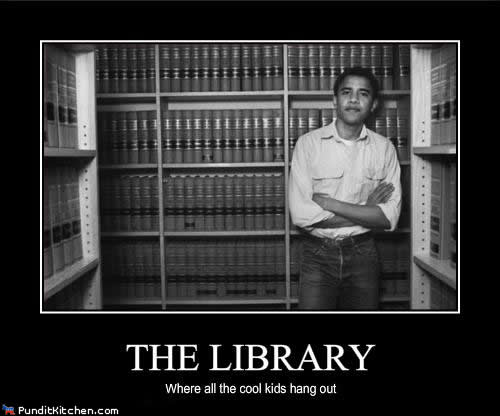Monday, May 28, 2012
 |
| Vladimir Putin- Machiavellian Prince or Pauper? |
Machiavelli’s masterpiece, The Prince (1513), advises rulers on how best to further their interests. He recommended doing whatever works for the advancement of a country’s interests and then went on to equate the interest of a state with the interests of its governing leader. Over time, the term "Machiavellian" has become a slur, meaning a ruler who has no moral compass and only operates in his own self-interest, i.e., an unscrupulous tyrant. Like most shorthand, this is a simplification of Machiavelli's original intention.
The one ruler in current affairs who most resembles Machiavelli's Prince would be Russian President-turned-Prime Minister-turned President Vladimir Putin, who seems motivated strictly by the desire to advance his own influence over Russia and the world. He has also been quite successful at doing so, contorting the Russian constitution like a pretzel to suit his whim of coming back as President and using the country’s oil and gas reserves as currency for his global ambitions.
Machiavelli wrote The Prince as an instruction manual for all rulers to use as a manual to keep subjects in line. Machiavelli stressed the importance of stability and for the ruler to have complete control over his entire kingdom. The Prince was written mainly as a guide book for a prince to maintain his power and then to keep his throne. To Machiavelli's prince, cruelty is justified because the ends justify the means. Throughout The Prince, Machiavelli poses the question, "Is it better to be loved more than feared or feared more than loved? Ideally, one ought to be both feared and loved." A loved prince would result in people willing to do anything for him, but they could go against their word unless he was also feared. Putin, therefore, resurrected torture colonies which people are sent to when they commit a crime against their country. The colonies range from torture by holding heavy weights and running to some of them imitating Nazi Death Camps (Putin’s Russia).
Machiavelli dedicated The Prince to Cesare Borgia, the illegitimate son of Pope Alexander VI, became a cardinal at the age of 17, a murderer by 25 and went on to conquer a good part of Italy by 27. The modern-day Machiavellian prince is just as murderous and corrupt as Borgia in the person of Vladimir Putin, who has created a virtual empire for himself in Russia and rules the country much like a puppeteer.
Following Machiavelli's advice of "always maintaining himself in princedom, unless deprived of it by some extraordinary and irresistible force, and even if so deprived, will recover it,” Putin has ruled Russia uninterrupted from 2000. He was first President between 2000 and 2008, but because the constitution did not allow him to run again, decided to take a detour to the Prime Minister’s office between 2008 and 2012. Last month, he re-emerged as President, switching roles with Dmitry Medvedev in a scene more becoming of a “feigned democracy.” Even as Prime Minister, Putin took no chances with Medvedev, ensuring that he continued to control the Kremlin behind the scenes.
During the last decade, Putin has amassed power and wealth by working with oligarchs, following Machiavelli’s textbook: "nothing increases the reputation of a prince so much as great enterprises." With control over the monopolies, he was able to manipulate Russia’s finances and pick winners and losers. His trusted allies became winners, while those out of favour found themselves in jail.
After being accepted by the upper class because he did not raise taxes, Putin aimed at getting the respect of the lower class. Machiavelli states that a prince should "shower benefits upon them [the citizens], they are yours; they offer you their blood, their substance, their lives and their children," and this is exactly what Putin did. The poverty level in Russia was over 30% when Putin came to office but it dropped to below 17% when he put in place his economic reforms (Washington Post). Putin perfected the system of privileges by putting it under complete government control: A system of largesse was designed to help poverty-stricken people buy the food and goods they needed to survive (Russia Profile).
Strictly following The Prince, Putin made sure that he was considered a benevolent dictator: "It is a good thing to be considered generous. But if liberality is not openly displayed for all to see, no one will ever hear about it." Hence, Putin staged an auction to sell a painting for $1.14 million dollars, promising all of the money for the Russian government to help repair the economy or for any other use the found necessary (New York Times). Putin was able to show people how generous he was and gain more support in the process.
Putin’s desire to command and control has extended abroad as well. After a bitter argument over who committed the Katyn massacre in the opening stages of the Second World War, Putin decided to cut off all oil flow to Poland. Putin has used oil and gas to manipulate countries. Machiavelli states that "the wise prince will rely on what he can control and not on what is in the control of others." Similarly, Putin ordered a gas cut-off to the Ukraine because Kiev refused to toe Moscow’s line (Washington Post).
Putin has maintained his authority as a “false democrat” (Globe and Mail) for the past 12 years and shows no signs of quenching his thirst for power. He is power-hungry but makes it look as if he is doing it for his country. The Prince is all about how well you can deceive your people. Arguably, few leaders in current politics can claim total immunity from Machiavellian ambitions, but few come close to personifying Cesare Borgia as Putin does.


